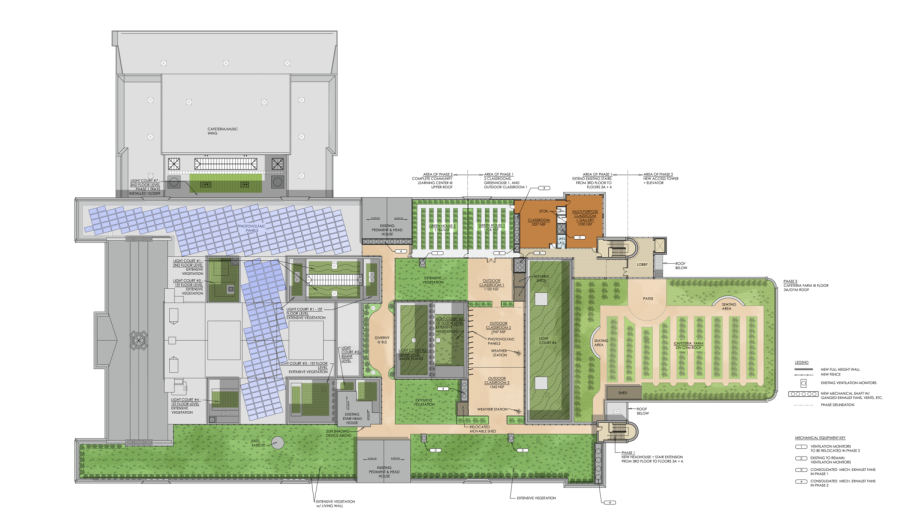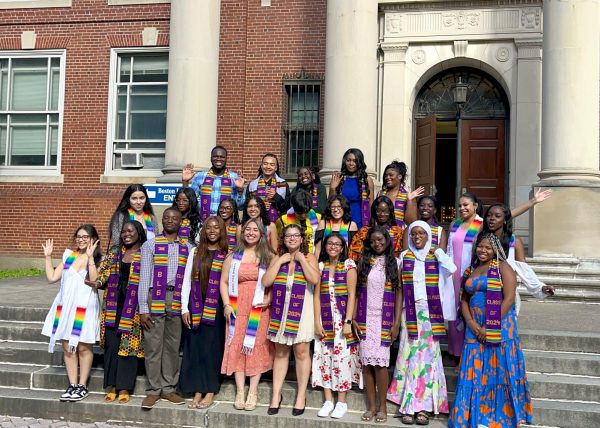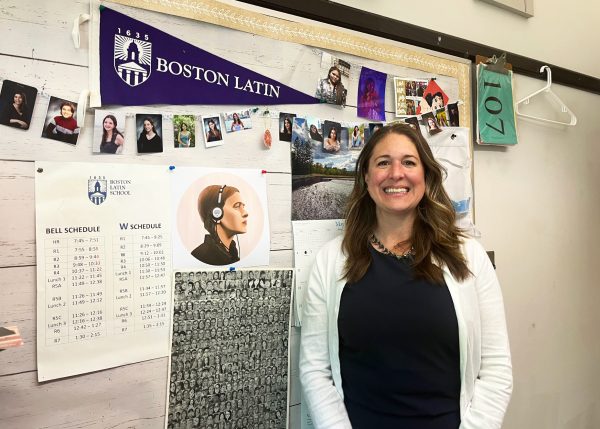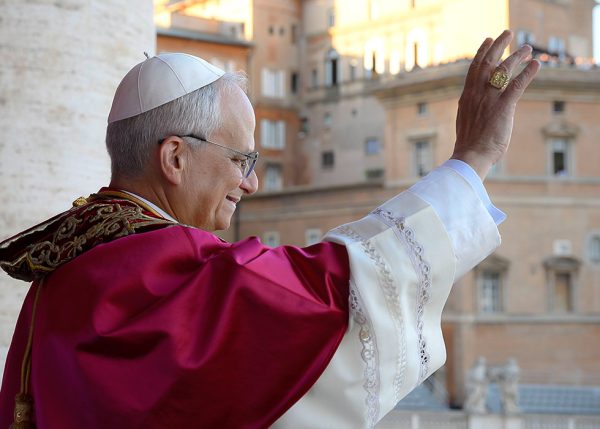An Uncertain Climate: Sustainability at BLS
Student-led clubs have launched numerous initiatives to put Boston Latin School at the forefront of climate action, leaving some wondering whether the school itself will play a more significant role as well.
In 2012, YouthCAN pushed for an energy-efficient retrofit to lighting in the dining hall and in the gym. When the school would not pay for it, the club raised 7,000 dollars to install motion sensor lighting within the school. According to the BLS Sustainability webpage, the retrofit saves the City of Boston 33,000 dollars a year and has reduced school energy consumption by up to 35 percent.
Without school support, not all projects have been as successful. In 2009, the club proposed the Green Roof project, which would have established landscaped gardens, renewable energy installations and STEM classroom space on the roof of BLS. Despite detailed plans and meetings with architects, former Mayor Thomas Menino and former Superintendent Dr. Carol Johnson, BLS pulled its funding commitment from the project in 2014 due to competing financial investments in the school.
YouthCAN officer Maia Frost (I) explains that the breakdown of the Green Roof project was a result of “bureaucracy and funding that shouldn’t be an issue when it comes to environmental justice, but it is.”
The Freight Farm, the hydroponics farm located behind the school, was awarded to YouthCAN in 2013. For years, students learned how to operate green technology and provide food for the school. Over the pandemic, however, those who ran the farm graduated and the unused technology fell into disrepair.
“We’re trying to get it back on track. I’d like to hand it over to somebody before I leave, at least working and having all those greens coming out of there because it’s pretty impressive when that happens,” says YouthCAN advisor and BLS history teacher Ms. Catherine Arnold.
Within the difficulties of these projects lies a recurring theme: changing priorities.
Because the majority of climate initiatives at BLS come from clubs, they are often short-lived. With old members leaving and new ones joining each year, it can be difficult to find a balance between continuing current projects and bringing new ones to the table.
As with the Green Roof project, support and funding from the school for sustainable initiatives have been uncertain. Many find that BLS and the Boston Latin School Association prioritize projects related to upgrading the academic environment rather than efforts to develop a “sustainability mindset” at the school.
For Ms. Arnold, sustainability is more than just going green: “Nestled within the value ‘living in a way that cares about the community in the global world’ is that question of sustainability. That was what YouthCAN was really trying to be about: the big ideas of sustainability. Yes, take care of the planet, but we’ve got to take care of society to take care of each other.”
She believes that school should be the starting place to engage students to become more sustainable. The first step is to educate teachers on how their subject relates to the intersectionality of matters including environment, economics and racism.
“At BLS, it seems like the big push is executive functioning in teaching. I think it’s valuable to teach people how to organize themselves, but it’s not the be-all end-all. To me, it’s a lot more important that people learn how to be decent human beings,” says Ms. Arnold.
Despite these challenges, YouthCAN hopes that the increased urgency around climate change will lead to more sustained action. This year, the club has partnered with Boston Public Schools to pilot a composting program during lunch at five school cafeterias, including the BLS dining hall. They hope this will help to address food waste in schools since food scraps would be collected and transported to a central composting facility.
In addition, YouthCAN is planning to open a mental health and sustainability room in the old faculty lunchroom inside the dining hall. The room would include plants and artwork, as well as serve as a non-academic space for students to relax and connect with nature.
YouthCAN President, Maya Nelson (I), concludes that the fight for a more sustainable school continues.
“Alongside every accomplishment, there has been a series of rejections and failures that have made us stronger as a club and more resilient in the things we are able to get done.”






